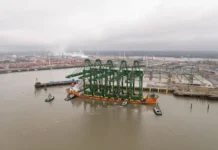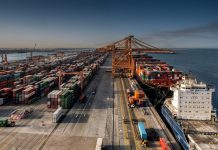
The European Commission (EC) has announced a ban on Russian vessels and Russian-operated ships from accessing European Union (EU) ports.
EC said there will be “certain exemptions” that will cover essentials, such as agricultural and food products, humanitarian aid as well as energy.
EC added it will propose a ban on Russian and Belarusian road transport operators. “This ban will drastically limit the options for the Russian industry to obtain key goods,” said European Commission.
The ban on Russian and Russian-operated vessels from EU ports is one of the six pillars of the fifth package of sanctions against Russia due to Putin’s invasion of Ukraine.
“The four packages of sanctions have hit hard and limited the Kremlin’s political and economic options. We are seeing tangible results. But clearly, in view of events, we need to increase our pressure further. Today, we are proposing to take our sanctions a step further. We will make them broader and sharper, so that they cut even deeper in the Russian economy,” said president of the European Commission, von der Leyen.
The fifth package of EC sanctions also includes an import ban on coal from Russia worth €4 billion (US$4.3 billion) per year, a full transaction ban on four key Russian banks, further targeted export bans and specific new import bans worth €5.5 billion (US$5.9 billion).
“We are working on additional sanctions, including on oil imports, and we are reflecting on some of the ideas presented by the Member States, such as taxes or specific payment channels such as an escrow account,” noted von der Leyen.





